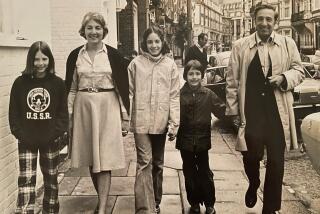Confusion swirls around Esquire story on Osama bin Laden’s killer
The fog of Abbottabad strikes again.
On Tuesday, confusion continued to swirl around Esquire magazine’s cover story about the Navy SEAL who killed Osama bin Laden during the instantly legendary May 2011 raid on the terrorist leader’s compound in Abbottabad, Pakistan.
The article, which was published online Monday, is framed around the premise that the SEAL, dubbed the Shooter, got “nothing” from the government after his retirement, including no healthcare coverage. According to officials and experts, that claim was incorrect: All Iraq and Afghanistan veterans get five years of healthcare benefits after retirement.
And now Esquire’s swift and firm defense of its story and that claim -- which was reported by Phil Bronstein, board chairman for the Center for Investigative Reporting, which co-published the article -- has already witnessed a factual backlash that has attended other high-profile accounts of the raid and its shadowy undertakers.
In a Tuesday morning blog post, Esquire responded to a Stars and Stripes reporter, Megan McCloskey, who called out the magazine over the no-healthcare claim. “It is a simple fact that when your family doesn’t have healthcare, you don’t have healthcare,” said the post, which was credited to Esquire’s editors. “Think the Shooter has healthcare? We respectfully suggest that Ms. McCloskey ask his wife.”
Esquire then accuses McCloskey of making a mistake when she said that Esquire’s story doesn’t mention the five years of healthcare afforded to all Iraq and Afghanistan veterans:
“Now granted, ‘The Shooter’ is a long story, lots of words to sort through, but McCloskey is wrong here. We refer her to this paragraph deeper in the piece: ‘There is a Transition Assistance Program in the military, but it’s largely remedial level, rote advice of marginal value: Wear a tie to interviews, not your Corfam (black shiny service) shoes. Try not to sneeze in anyone’s coffee. There is also a program at MacDill Air Force Base designed to help Special Ops vets navigate various bureaucracies. And the VA does offer five years of benefits for specific service-related claims -- but it’s not comprehensive and it offers nothing for the Shooter’s family.’”
Except Esquire is wrong.
According to a Google cacheof the original story posted online on Monday, those final two sentences about benefits were not in the story it published.
In an update to its blog post defending the article, Esquire has since acknowledged the sentences were omitted in a production error in the online version, but has defended the thrust of its story about the lack of benefits. “The story’s argument, however, remains the same: That the man who shot and killed Osama bin Laden, as the following post explains, remains responsible for his own healthcare and that of his family.”
McCloskey, who has covered veterans affairs for Stars and Stripes, tweeted earlier that Esquire’s claims were “blatant falsehoods” and that its response was “a total smear campaign” -- the magazine “insinuated I simply couldn’t read all those words.”
These journalistic squabblings may seem like nitpicky small-ball to some readers, but for former veteran and Veterans Affairs official Brandon Friedman, now a vice president for Fleishman-Hillard, the Esquire article remains deeply unrepresentative of the federal government’s military benefits.
“There are many issues with the Esquire piece beyond the fact that a ‘regretful production knot’ caused them to leave out a key sentence,” Friedman tweeted, adding, “They’re still characterizing five years of FREE health care as ‘not comprehensive.’”
Another veteran Marine Corps officer wrote to the Los Angeles Times to offer to help the shooter file for benefits.
The SEAL controversy is highly unusual for the world of major glossy magazines, which pay fact-checkers to ensure that articles are error-free before they reach newsstands, but it also seems part of the seemingly now-regular accusations of misrepresentation that have become legion when it comes to the Abbottabad raid.
The accusations began with the Obama administration’s first details about Bin Laden’s death in “an intense gun battle”; continued in the first comprehensive journalistic account of the raid, published by the New Yorker, which failed to disclose that the author hadn’t spoken to any of the SEALs who had participated; flourished with the implication in “Zero Dark Thirty” that torture led to the discovery of Bin Laden’s compound, leading to a Senate inquiry after the movie’s release; and now, in Esquire’s latest account, have gently accused raid member Matt Bissonnette of “gloss[ing] over” the shooter’s role in his book about Bin Laden’s death, “No Easy Day.”
No easy day, nor easy story indeed.
ALSO:
Report: SEAL who killed Bin Laden is struggling in civilian life
Former Californian Clint Romesha gets Medal of Honor for valor
SEAL sniper Chris Kyle gets public farewell at Cowboys Stadium
More to Read
Sign up for Essential California
The most important California stories and recommendations in your inbox every morning.
You may occasionally receive promotional content from the Los Angeles Times.











